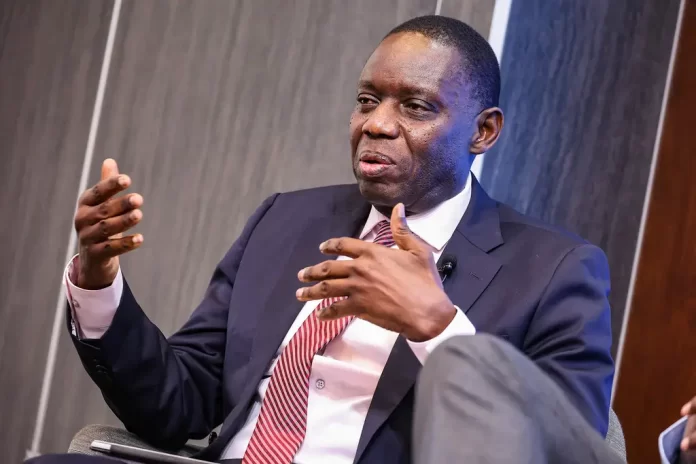The Bank of Uganda (BOU) has initiated a gold purchase program as a way of enhancing the country’s foreign exchange reserves in a bid to minimize the use of traditional assets. The move supports local miners and minimizes the importation of gold, one of Uganda’s largest export commodities, surpassing tourism and coffee.
This was revealed by the Bank of Uganda Deputy Governor, Michael Atingi-Ego, on July 16, 2024, during an interview with an international television, noting that the move is one way through which the central bank is fighting depleting forex reserves by enjoying natural resources that Uganda has in abundance.
“What we are trying to do is ensure that we halt the decline in our foreign exchange reserves by looking at some of the natural resources we have to seek the extent to which they can mitigate this decline,” Atingi-Ego said.
He added that the Central Bank focuses on finding a way to overcome the issues that affect the bank’s numerous operations and its ability to meet its mandate.
The gold purchase program seeks to directly support local miners by purchasing gold from artisanal and small-scale miners and is expected to have positive spill-over effects on other sectors of the economy, aligning with the Bank of Uganda’s mission to support the government’s socio-economic transformation.
The gold will be bought by the local mining companies and refined to a minimum of 99.5% purity levels before being turned into administrative monetary gold. This is not a unique approach for Africa, as several countries started focusing on innovative ways of dealing with economic issues like rising debts, high inflation rates, interest rates, and economic downturns as induced by the COVID-19 pandemic and geopolitical tensions.
Uganda’s economy has fared better than many of its peers, thanks to prompt monetary policy tightening that kept inflation in check and a deliberate decision not to defend the shilling when it came under pressure. However, continued capital outflows have seen Uganda’s reserves decline by $149 million to $3.47 billion, or 3.2 months of future import cover, which the bank said provides inadequate cover for the country’s currency account deficit.















